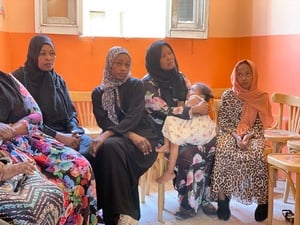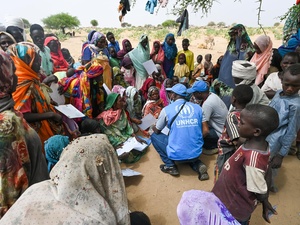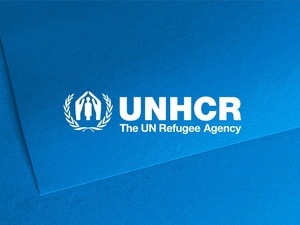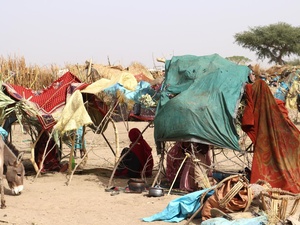Thousands flee to South Sudan to escape clashes in Southern Kordofan
Thousands flee to South Sudan to escape clashes in Southern Kordofan

A family displaced by the conflict in Southern Kordofan.
JUAB, South Sudan, September 16 (UNHCR) - The UN refugee agency said Friday that more than 8,000 civilians have fled into the newly independent South Sudan to escape fighting in a volatile border state of Sudan.
The new arrivals from Southern Kordofan state are mostly refugees from the Nuba Mountains region of central Sudan, who began trickling into South Sudan in July following heavy fighting and air strikes. Since last week however, there has been a surge in arrivals, with up to 500 people a day from 100 people a day in August.
"These are the first refugees to reach post-independence South Sudan and we expect more arrivals amid persistent reports of aerial bombing in Southern Kordofan. New arrivals also include some South Sudanese who had been living in Southern Kordofan State before being compelled to return because of the violence," UNHCR spokesman Adrian Edwards said.
Most of the displaced walked for days to reach safety in South Sudan's Unity state, which shares a border with the troubled Abyei, Southern Kordofan states.
These people are scattered in remote northern areas of Unity, where a lack of airstrips and roads is limiting humanitarian access. To reach them, aid agencies are using a small number of quad bikes - one of the few means of travelling in this area. These bikes, although well-suited for the terrain, can bring in only limited numbers of staff and goods at a time. Food supplied by the World Food Programme had to be airdropped recently to the region.
UNHCR has conducted basic registration at the border and identified the most vulnerable among the new arrivals for individual follow-up.
"We are supporting a mobile clinic to address the health needs, and our partners have been working on improving water and sanitation facilities and providing treatment for the severely malnourished. Meanwhile, we are currently developing a site to relocate the refugees away from the border. The work includes building health, school, and clean water and sanitation facilities," Edwards said.
Transporting the thousands of displaced to the site will be difficult because of the state of the roads, or their absence. The authorities of Unity state have started doing urgent repairs to open up roads to cars and trucks again. In the interim, most of the displaced will have to trek to the new site on foot. Specific transport arrangements will be made for the most vulnerable to spare them the harsh journey.








